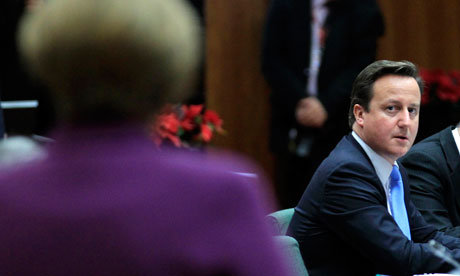It's easy to point a finger at Amazon and co, but UK-based trusts make it easier than ever for the rich not to pay their share

There are many UK companies that offer trusts 'guaranteed to protect almost all your wealth from inheritance tax'. Photograph: Image Source/Alamy
The hottest ticket this week was a ringside seat for the public accounts committee's roasting of tax-avoiding Starbucks, Google and Amazon. Committee chair Margaret Hodge in full flight gave them a magnificent tongue-lashing, with Tories hot on her heels too, pouring derision on "don't be evil" companies' pretence to make next to no profit as they siphon cash into tax havens. Even the comptroller and auditor general lost his temperand called their evidence "insulting".
These are only opening salvos, as the Germans and French take aim too against companies pretending their profits arise in Bermuda or Luxemburg. John Lewis's managing director is calling on the Treasury to demand tax is paid in the country where profits are made:Amazon made £3.3bn in sales but paid zero UK corporation tax on any of the profits of that income. "They will out-invest and ultimately out-trade us," tax-paying John Lewis protests, unable to compete fairly with tax-shirkers. This should be easy to fix. Vince Cable says he's angry – but HMRC could refuse to accept these companies' accounts.
Everyone can point a shocked finger at foreign giants who bamboozle or intimidate our tax collectors. But the culture of avoidance runs deep. Labour tiptoed round the edge of the tax avoidance industry, chased off by City blusterers who called tougher tax collection a Labour stealth tax. But since the crash, the collapse in tax revenues has created soaring national debt, so the need for the Treasury to collect every penny owed has become more pressing. The culture of getting away with what you can has to give way to a popular understanding that one man's tax dodge is his own community's lost children's centres, libraries and swimming pools. So where does it all begin?
In a sedate Sussex hotel, St James's Place Wealth Management invited a flock of retired people of comfortable means to one of their genteel sales pitches on how to avoid tax. Observing unannounced, I listened to them selling their Rolls Royce anti-tax vehicles and investment funds: one fund was so stellar that it grew in 30 years from £30,000 to £2.7m – and how the room gasped in admiration. Yes, yes, we were all well warned that investments can go down as well as up, but the upside of that £2.7m looked more compelling than any risk. But the real seller for these elderly people concerned ways to avoid "uninvited guests at the sharing out of your estate". Those "uninvited guests" are the rest of the nation's taxpayers.
The atmosphere was impish and jocular, with the taxman as pantomime villain. Shocking stories were told of what befalls the estates of those without cunning advisers. Charles Clore lived abroad to avoid tax, but because he foolishly wanted to be buried "back home", the taxman deemed he was not really resident abroad at all and his whole estate was subject to inheritance tax. Gasps of shock. On screen, up came Prince Philip's whimsical remark that "All money nowadays seems to be produced with a natural homing instinct for the Treasury" – though in his case money makes the reverse journey from the Treasury to his trouser pocket. "Taking the worry out of wealth," was the theme, as one presenter promised: "We can protect your money from the dangers of tax," explaining how to offshore money.
But the big sell is trusts, special ones devised for this company's clients, guaranteed to protect almost all your wealth from inheritance tax. They are right, it can be done easily. Put all moveables and all cash and investments into a discretionary trust, and it passes to your heirs without tax as soon as you die, not even waiting for probate. It counts as a gift so the beneficiaries need pay no tax either. Called a "discretionary trust", as technically St James's are the legal trustees, the discretion in fact remains in all but name with you: the company will do whatever you ask, so you still control the fund and you can still take money from it. But for reasons that defy basic tax fairness, it avoids all inheritance tax. Why?
Even worse, hard-pressed local authorities are denuded by these trusts too. As St James's advisers eagerly pointed out, if you hide away your assets in a trust, it can't be counted when calculating how much you should contribute to your care if you need to go into a residential home. He warned that could be £1,300 a week in fees – more gasps – so why let your council take your money when you can salt it away safely in a trust? Let poorer taxpayers pick up the bill instead.
Richard Murphy, tax campaigner and adviser to the public accounts committee and others, says no one knows how much money passes through these trusts. They are opaque, unregistered and the taxman neither knows if they exist nor what's in them. Far more tax is probably avoided this way than the mere £3bn collected in inheritance tax: only 3.5% of estates pay it – and they may not be the richest. Why any Labour chancellor – or Tory for that matter – lets this dodge persist is a mystery. Inheritance is a neuralgic political topic, ever since the issue panicked Gordon Brown into ducking an election in 2007. But since so few estates pay it, it's hard to see why the 96.5% of ordinary taxpayers who never leave enough to get above the £650,000 couples' inheritance tax allowance would not support ending this loophole for the rich.
Meanwhile, the public accounts committee is summoning back Amazon after this week's "deliberately evasive" display of "outrageous" ignorance by one of their executives: he didn't know who owns their Luxembourg-based holding company that pays a fraction of the UK's tax rate. The return match is not to be missed. Margaret Hodge is calling for complete transparency to stop companies claiming "commercial confidentiality" to hide their accounts. She wants aggressive avoiders to be named and shamed and denied public contracts, and she suggests the public boycott tax avoiders.
On 8 December UK Uncut is protesting against Starbucks, setting up creches, libraries and women's refuges in the coffee shops, as payback for services that might stay open if Starbucks paid fair tax. Is it time the committee looked at how the likes of PricewaterhouseCoopers, KPMG, Accenture and McKinsey devise ever more elaborate tax dodges for their clients, yet with the other hand seize ever fatter contracts from the state they help strip bare of revenues?




